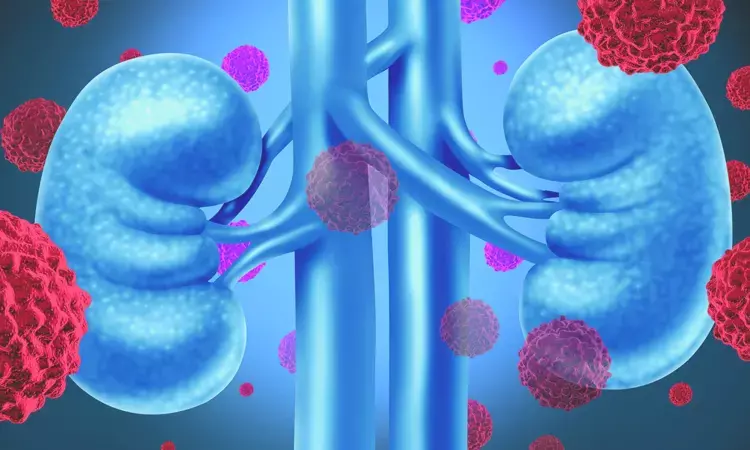- Home
- Medical news & Guidelines
- Anesthesiology
- Cardiology and CTVS
- Critical Care
- Dentistry
- Dermatology
- Diabetes and Endocrinology
- ENT
- Gastroenterology
- Medicine
- Nephrology
- Neurology
- Obstretics-Gynaecology
- Oncology
- Ophthalmology
- Orthopaedics
- Pediatrics-Neonatology
- Psychiatry
- Pulmonology
- Radiology
- Surgery
- Urology
- Laboratory Medicine
- Diet
- Nursing
- Paramedical
- Physiotherapy
- Health news
- Fact Check
- Bone Health Fact Check
- Brain Health Fact Check
- Cancer Related Fact Check
- Child Care Fact Check
- Dental and oral health fact check
- Diabetes and metabolic health fact check
- Diet and Nutrition Fact Check
- Eye and ENT Care Fact Check
- Fitness fact check
- Gut health fact check
- Heart health fact check
- Kidney health fact check
- Medical education fact check
- Men's health fact check
- Respiratory fact check
- Skin and hair care fact check
- Vaccine and Immunization fact check
- Women's health fact check
- AYUSH
- State News
- Andaman and Nicobar Islands
- Andhra Pradesh
- Arunachal Pradesh
- Assam
- Bihar
- Chandigarh
- Chattisgarh
- Dadra and Nagar Haveli
- Daman and Diu
- Delhi
- Goa
- Gujarat
- Haryana
- Himachal Pradesh
- Jammu & Kashmir
- Jharkhand
- Karnataka
- Kerala
- Ladakh
- Lakshadweep
- Madhya Pradesh
- Maharashtra
- Manipur
- Meghalaya
- Mizoram
- Nagaland
- Odisha
- Puducherry
- Punjab
- Rajasthan
- Sikkim
- Tamil Nadu
- Telangana
- Tripura
- Uttar Pradesh
- Uttrakhand
- West Bengal
- Medical Education
- Industry
Younger survivors of kidney cancer at greater risk of heart issues

USA: A recent study published inthe Journal of the National Comprehensive Cancer Network revealed a high risk of heart issues among adolescent and young adult survivors of kidney cancer due to increased levels of hypertension (high blood pressure).
The study assessed the incidence and risk of hypertension-high blood pressure and heart failure among adolescents and young adults (AYA) patients diagnosed with kidney cancer who also received a form of drug that blocks blood vessel growth as part of their treatment. In particular, the researchers looked at the effects of two drugs called sunitinib and sorafenib. They found that approximately half of AYAs treated with sorafenib and one-third of AYAs treated with sunitinib eventually developed hypertension.
Cardiovascular disease is a leading cause of health complications and death among adolescents and young adults diagnosed with cancer, where AYAs are characterized as patients between the ages of 15 and 39.
“The large number of AYAs who had high blood pressure during treatment with sunitinib or sorafenib suggests that even individuals without identifiable pre-existing factors such as older age, obesity and male gender-are also at significant risk for hypertension from these drugs,” said study lead author Wendy Bottinor, M.D, a cardio-oncologist and member of the Cancer Prevention and Control research program at Massey and VCU Health Pauley Heart Center.
Contrary to their original hypothesis, the researchers discovered that younger age was not associated with a reduced risk of heart failure in AYA cancer survivors compared to older cancer patients. In fact, this population is at risk for a type of heart failure called left ventricular systolic dysfunction.
In the United States, approximately 90,000 AYAs are diagnosed with cancer every year, according to the American Cancer Society. Kidney, thyroid and colorectal tumors are among the more common cancers in this age group, a trend that has been on the rise over the last few decades.
The risk for heart disease among AYAs with cancer is more than double that of people in the same age group without cancer, and the risk of death is nearly 10 times higher among AYAs with heart disease when compared with AYAs who do not have heart disease, as indicated by multiple studies over the last decade. Hypertension forces the heart and blood vessels to work overtime, eventually damaging the tissues in the arteries and increasing a person’s odds of irregular heartbeat, heart attack or stroke.
Chemical signals within the body regulate a process called angiogenesis, which is the production of new blood vessels. One of these chemical signals-vascular endothelial growth factor (VEGF)-clings to the surface of other cells to influence the growth and survival of new blood vessels. Angiogenesis plays a critical role in the progression of solid tumors because cancer cells need the oxygen and nutrients from blood to grow and spread. A class of drugs called angiogenesis inhibitors are often used alone or in combination with other therapies to stymy the growth of blood vessels that support tumor growth.
This study looked at early-stage kidney cancer patients who received a specific type of angiogenesis inhibitor-VEGF inhibitors-as part of their treatment regimen. Sunitinib and sorafenib are VEGF inhibitors.
“Although VEGF inhibitors are often used as an effective therapeutic option for adult and pediatric cancer patients, cardiovascular toxicities can be a significant limitation of this treatment, with hypertension and left ventricular dysfunction among the most common,” Bottinor said. Historically, the scientific understanding of the cardiovascular toxicities of these drugs among AYAs has been very limited.
“Adolescent and young adults are an underrepresented group in cancer research with a significant cardiovascular burden,” Bottinor said. “Understanding the relationship between cancer diagnosis, treatment and heart disease is imperative to promoting cardiovascular health over the entire lifetime of adolescent and young adult cancer survivors.”
Dr Kamal Kant Kohli-MBBS, DTCD- a chest specialist with more than 30 years of practice and a flair for writing clinical articles, Dr Kamal Kant Kohli joined Medical Dialogues as a Chief Editor of Medical News. Besides writing articles, as an editor, he proofreads and verifies all the medical content published on Medical Dialogues including those coming from journals, studies,medical conferences,guidelines etc. Email: drkohli@medicaldialogues.in. Contact no. 011-43720751


